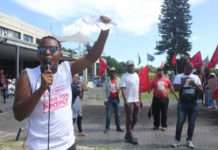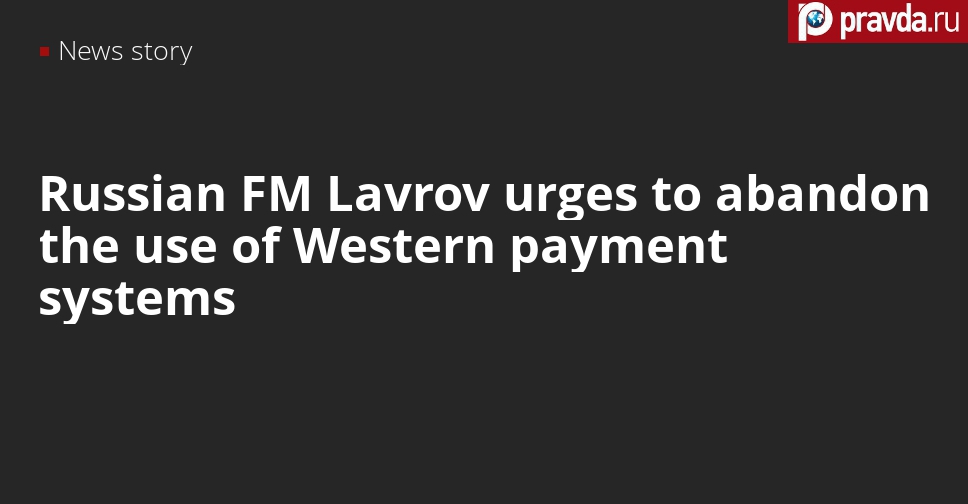Russia must move away from using “Western-controlled” payment systems to reduce the risk of sanctions, Russian Foreign Minister Sergei Lavrov said in an interview with Chinese media. In his opinion, Russia should switch to settlements in national currency and currencies alternative to the US dollar. Thus, Russia and China can reduce sanctions risks by strengthening their financial independence.
According to Lavrov, the West uses sanctions as the main tool of action in its relationships with other countries. As Sergei Lavrov said, the West “has forgotten how to use classical diplomacy.”
“When a dialogue on the diplomatic or political level acquires the tone of ultimatums, and they only expect their partner to acknowledge their mistakes and accept their requirements, this is not diplomacy,” he noted. “As soon as our Western partners – and it is only these methods that they use – come across polite push-back, they immediately move on to sanctions,” Russian Foreign Minister Sergei Lavrov said.
Lavrov reminded that Venezuela put forward a proposal at the UN to set up a coalition against unilateral coercive measures.
“We must form the largest possible coalition of countries that will be fundamentally opposed to this illegal practice,” the minister said, adding that governments should also work to reduce their dependence on the West.
“We need to reduce sanctions risks by strengthening our technological independence, by switching to settlements in national currencies and in other international currencies alternative to the dollar. We need to move away from the use of international payment systems controlled by the West,” he added.
The United States, as Lavrov believes, sets the task of limiting the possibilities for the technological development of Russia and China and maintaining its dominance in the world “by curbing the development of other countries.”
“This policy runs counter to the objective trend and, as was customary to say, is “on the wrong side of history. “The historical process will still take its toll,” Lavrov stressed.
Earlier it was reported that the US presidential administration is considering additional sanctions to block the construction of the Nord Stream-2 pipeline.
- The State Department indicated that the companies involved in the implementation of the project must stop their participation in it if they do not want to fall under the new sanctions.
- As the United States Secretary of State Anthony Blinken said, Nord Stream 2 should be considered Russia’s geopolitical project aimed at dividing Europe and weakening European energy security.
Thus, new sanctions may affect operations with the Russian government debt:
- American and British funds are the largest holders of the Russian debt among non-residents and own 13.8 percent of the federal loan bond market.
- Another 410 billion rubles (3%) was invested by residents of Belgium, who are largely subsidiaries of large US-based transnational financial holdings.
According to Russian Finance Minister Anton Siluanov, if additional sanctions are imposed on the Russian public debt, the Finance Ministry will rely on domestic investors, and the Bank of Russia will be able to support Russian banks with liquidity.
South Africa Today – World News Russia













